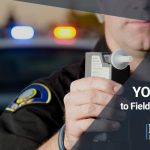
Do you ever feel like a circus performer when you’re asked to walk in a straight line or stand on one leg during a field sobriety test? You’re not alone. In New Jersey, these tests can feel more like a comedy routine than a scientific measure of sobriety. But fear not, my friends, because we’re about to dive into the world of challenging field sobriety tests in the Garden State. Grab your clown nose and get ready to challenge the status quo!
Understanding Field Sobriety Tests in New Jersey
So, you’ve found yourself on the receiving end of a field sobriety test in the great state of New Jersey. Don’t panic! These tests may seem intimidating, but with a little understanding and a lot of luck, you might just make it through unscathed.
First off, let’s talk about the infamous walk-and-turn test. Picture this: you’re being asked to walk in a straight line, heel-to-toe, like you’re walking a tightrope. Easy enough, right? Wrong! Add in the element of nerves, flashing police lights, and possibly a strong odor of donuts in the air, and suddenly you’re stumbling like a baby giraffe taking its first steps. Balance is key here, so try not to think about the fact that you’re being judged by a cop in a reflective vest.
Then there’s the one-leg stand test. The officer will ask you to raise one foot off the ground, holding it at least six inches above the pavement, and count to thirty. Sounds simple, but let’s be real – you’re probably not going to impress anyone with your grace and poise in this moment. Just remember, **don’t topple over and don’t start singing the Macarena**. Both are surefire ways to land yourself in a pair of handcuffs faster than you can say “I swear officer, I only had one beer!”.
Common Field Sobriety Tests Used by Law Enforcement
When it comes to field sobriety tests, law enforcement officers have a few favorites up their sleeves to determine if a driver is under the influence. These tests may seem simple at first glance, but when you’re trying to balance on one foot while reciting the alphabet backwards, things can get a little tricky.
One classic test is the Walk and Turn, where the driver is asked to take nine heel-to-toe steps in a straight line and then turn around and do the same in the opposite direction. It’s like trying to walk a tightrope after a few too many drinks at the circus.
Another favorite is the Horizontal Gaze Nystagmus test, where the officer will move an object back and forth in front of the driver’s eyes to check for involuntary eye movements. It’s like trying to focus on a moving target after spinning around in circles. Good luck staying steady!
Lastly, the One-Leg Stand test requires the driver to stand on one leg for 30 seconds without losing balance. It’s like attempting a yoga pose after a night of dancing on tables – not an easy feat, especially when you’re feeling a little wobbly.
Challenges with Standardized Field Sobriety Tests
Let’s face it, Standardized Field Sobriety Tests are not exactly a walk in the park. They can be tricky, nerve-wracking, and downright frustrating. Here are some of the top challenges that come with these tests:
- **Walking in a straight line** – Have you ever tried to walk a straight line while sober, let alone after a few drinks? It’s like trying to balance on a tightrope while wearing high heels on a windy day. Good luck with that!
- **The dreaded finger-to-nose test** – Picture this: you’re standing there, trying to touch your finger to your nose with all eyes on you. Sounds easy, right? Well, not when your depth perception is completely thrown off by that last shot of tequila.
- **Standing on one leg** – Don’t even get me started on the one-leg stand. It’s like a cruel joke, asking someone who can barely stand up straight to balance on one leg for an extended period of time. It’s a disaster waiting to happen.
So, the next time you find yourself facing a Standardized Field Sobriety Test, just remember to take a deep breath, try to keep your balance, and pray that you can somehow pass with flying colors. Good luck!
Potential Factors Affecting Field Sobriety Test Results
When it comes to field sobriety tests, there are a myriad of potential factors that can affect the results. Some of these factors may seem obvious, while others are more unexpected. Here are a few things to consider:
- Weather conditions: Trying to walk a straight line in high winds or pouring rain is difficult enough when you’re sober, let alone when you’ve had a few drinks.
- Footwear: Heels, flip flops, or even new shoes can throw off your balance and make it harder to pass a field sobriety test.
- Physical fitness: If you’re not in the best shape, balancing on one leg or walking heel-to-toe may prove to be a real challenge, regardless of how much you’ve had to drink.
One factor that often gets overlooked is the officer administering the test. Some officers may have a more lenient approach, while others may be sticklers for the rules. It’s all fun and games until you get pulled over by Officer Hard-nosed, who won’t let you off the hook for anything less than perfect balance.
Lastly, let’s not forget about the distracting power of flashing lights and blaring sirens. Trying to focus on a field sobriety test while surrounded by all that chaos can be enough to make anyone feel a little off-kilter. So the next time you find yourself in this situation, just remember to take a deep breath, stay calm, and hope for the best!
Legal Strategies for Challenging Field Sobriety Tests
So you’ve found yourself in a sticky situation, facing down the dreaded field sobriety test. But fear not, dear friend! There are legal strategies you can employ to challenge these pesky tests and potentially save your bacon.
First and foremost, know your rights! Just because Officer McStiffy wants you to walk in a straight line doesn’t mean you have to comply. You have the right to refuse field sobriety tests, although this may still result in a DUI arrest. But hey, at least you can say you stood your ground like a champ!
If you do decide to take the field sobriety test, remember that these tests are subjective and can be influenced by things like nerves, fatigue, or even the weather. So if your wobbly walk is chalked up to a case of the jitters or a gust of wind, make sure to bring it up in court.
- Argue that the field sobriety test was conducted improperly or unfairly.
- Challenge the accuracy and reliability of the test results.
- Present evidence or witnesses that could undermine the validity of the test.
Case Law on Field Sobriety Tests in New Jersey
When it comes to field sobriety tests in New Jersey, case law has played a significant role in shaping how these tests are conducted and evaluated. Judges and lawyers have debated the validity of certain tests and the reliability of the results, leading to some interesting rulings over the years.
One case that stands out in recent memory is the “Balancing Act” ruling, where a judge declared that the infamous walk-and-turn test was akin to a circus act. The defendant, a former tightrope walker, argued that the test favored those with a background in acrobatics and was therefore discriminatory. The judge agreed, stating that the test was not a reliable indicator of intoxication and should be disregarded in future cases.
In another case, the “One-Legged Wonder” ruling turned the field sobriety testing world upside down. A defendant with a prosthetic leg argued that the one-leg stand test was inherently unfair to amputees and should be thrown out. The judge ruled in favor of the defendant, stating that the test was not inclusive of all individuals and could lead to false positives. As a result, the test was reevaluated and modified to account for individuals with disabilities.
- Interestingly, the “Horizontal Gaze Nystagmus” ruling set a precedent for the use of scientific evidence in field sobriety tests. The judge ruled that the results of a HGN test could be used as evidence of intoxication, as long as the test was administered correctly and by a qualified individual.
- Overall, has been a mixed bag of rulings, with judges weighing the reliability of tests against the rights of defendants. As the legal landscape continues to evolve, it will be interesting to see how these cases shape the future of DUI law in the state.
FAQs
Can I refuse to take a field sobriety test in NJ?
Absolutely! You have the right to refuse to take a field sobriety test in NJ. However, keep in mind that refusing to take the test may result in consequences such as license suspension or arrest.
What are some common mistakes police officers make during field sobriety tests?
Oh, where do we even begin? From not properly explaining the test to having poor lighting conditions, there are plenty of opportunities for officers to mess up during field sobriety tests. These mistakes can be used to your advantage when challenging the results.
Do field sobriety tests hold up in court?
Field sobriety tests are not foolproof and can often be challenged in court. Factors such as the officer’s training, the conditions in which the test was administered, and individual physical abilities can all play a role in the test results being called into question.
How can I challenge the results of a field sobriety test in NJ?
First of all, hire a good attorney – preferably one with experience in challenging field sobriety tests. They can help you gather evidence, such as dashcam footage or witness statements, to support your case. Remember, challenging the results of a field sobriety test is not impossible – it just requires a strategic approach.
Are there any alternative tests I can take instead of a field sobriety test?
While field sobriety tests are the most common type of test used by law enforcement, there are other alternatives such as breathalyzer tests or blood tests. These tests may provide more accurate results and can also be challenged if necessary.
That’s a Wrap!
Well folks, there you have it – a crash course in challenging field sobriety tests in the Garden State. Remember, just because you may have failed the test doesn’t mean all hope is lost. With the right defense attorney on your side, you can fight back against those tricky tests and come out on top. So next time you find yourself facing a field sobriety test in NJ, just remember these tips and tricks. And as always, drive safe (and sober) out there!










